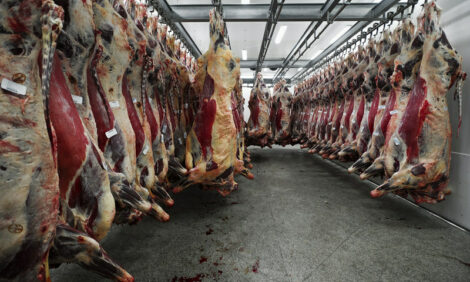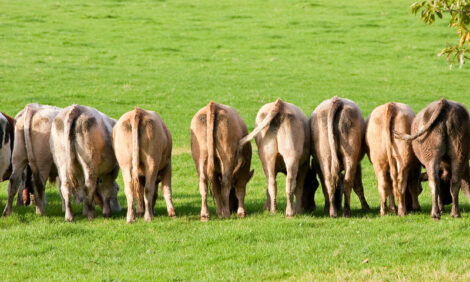



Dairy UK Joins Call on Govt to Ensure Successful Brexit for Food Sector
UK - Dairy UK has joined with farmers and the wider food supply chain to set out the terms of a successful Brexit.Dairy UK has co-signed a joint-industry letter detailing what a successful Brexit means to the food sector.
The thirty-six organisations, including Dairy UK have called on the Government to:
- maintain free and frictionless trade with our major trading partner, the EU, and secure the benefits of existing EU preferential trade arrangements, at least until government can replace them with acceptable alternative arrangements;
- ensure ongoing access to an adequate supply of permanent and seasonal labour;
- continue to promote food production through agricultural policy alongside our existing high environmental, health and animal welfare standards, and
- ensure businesses operate under an efficient and proportionate regulatory system that is centred on scientific evaluation and that incentivises innovation and competitiveness.
Commenting, Dr Judith Bryans, Chief Executive of Dairy UK said: "At this time of uncertainty I'm pleased that through the NFU the food supply chain has come together to clearly communicate the needs of the sector to thrive in a post-Brexit environment.
"Protecting the interests of the food supply chain is not only important for the UK economy, but also for protecting food security of the nation. We hope the UK Government will heed these objectives and support the food sector throughout the Brexit negotiations"
The contents of the letter are as follows:
Food is essential to us all. The UK food chain is passionate about providing a safe, affordable and secure supply of food for the country. However, Brexit presents an unprecedented challenge to the affordability, availability, and choice of food for UK consumers.
The UK's food and drink supply chain is highly diverse, supporting more than one in ten jobs and contributing £112bn to the UK economy. It stretches from the farmers who produce the raw ingredients, through the businesses that supply them with seed, feed, inputs and advice, to the industries that purchase their goods and manufacture, process and sell them on to other businesses and ultimately to consumers.
All of these businesses will be deeply affected when our membership of the European Union ceases. Many currently rely on a high proportion of non-UK permanent and seasonal labour sourced from within the EU; many are part of highly sophisticated and integrated supply chains that rely on the free flow of goods between the UK and other EU member states, free of tariffs, veterinary and customs check, and subject only to necessary phytosanitary checks; and many operate under an array of regulations and programmes derived from Brussels and applicable to all EU businesses. It is clear that the effect of the decision to leave the European Union is already being felt in the sector as uncertainty and lack of clarity impacts business confidence.
The UK food supply sector has come together to establish a common view of the objectives the UK government should pursue as it negotiates the UK's withdrawal, establishes its future relationship with the EU, and puts in place domestic policies.
We urgently call on the government:
- to maintain free and frictionless trade with our major trading partner, the EU, and secure the benefits of existing EU preferential trade arrangements, at least until government can replace them with acceptable alternative arrangements;
- to ensure ongoing access to an adequate supply of permanent and seasonal labour;
- to continue to promote food production through agricultural policy alongside our existing high environmental, health and animal welfare standards, and
- to ensure businesses operate under an efficient and proportionate regulatory system that is centred on scientific evaluation and that incentivises innovation and competitiveness.
And sitting above all these, the government must be unqualified in its support for the UK's food supply chain and the business of food production, explicitly recognising their importance in post-Brexit Britain – in managing over 70% of the UK landmass that is farmed; in providing 3.9 million jobs in industries both pre- and post-farmgate; in contributing to two of the UK economy's big success stories: UK manufacturing and retail; and in providing a safe, secure and affordable supply of food to some of the highest health, welfare and environmental standards in the world.
We acknowledge our role in making Brexit a success – in improving productivity, competitiveness and driving growth in the economy, in creating jobs, and in achieving a more sustainable food supply system that minimises the impact our businesses have on the environment. But a Brexit that fails to champion UK food producers and the businesses that rely on them will be bad for the country's landscape, the economy and critically our society.
We call on the UK government to agree as a matter of priority on the terms of a transition deal that provides clarity, continuity and certainty for UK farms and food businesses as well as for consumers. Furthermore, we call on the government to take a constructive approach to the negotiations and to the task of establishing domestic policies in a post-Brexit Britain, working with devolved governments, the UK food and drink supply chain to ensure it champions and promotes our crucial food sector in all its many constituent parts.
You can see the full list of signatory organisations by clicking here.
TheCattleSite News Desk


